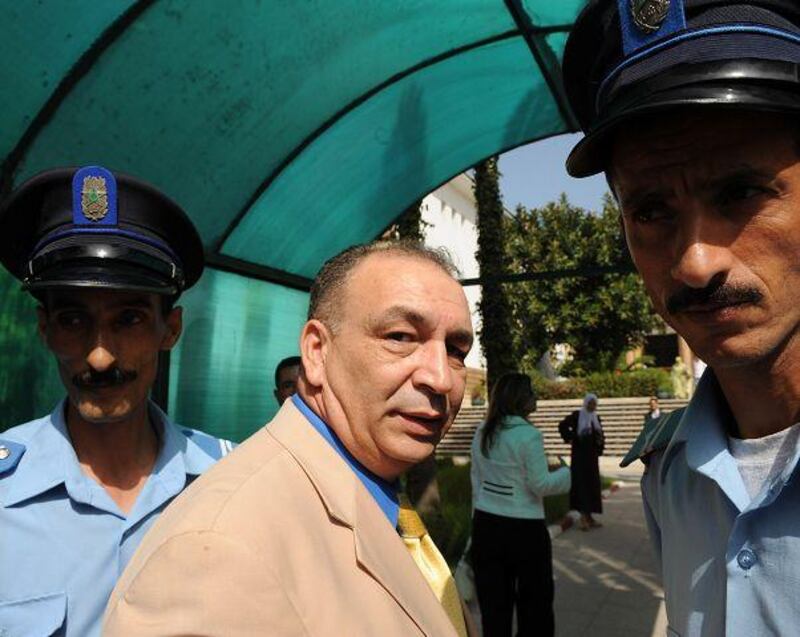NEW YORK // A media watchdog has criticised Arab ministers for clamping down on the freedom of satellite television news channels to broadcast stories that are critical of "social peace". Carl Bernstein, the veteran journalist famous for stories about the Watergate break-in, spoke out against a pan-Arab regulatory document for television and radio broadcasting as a "statement of closed-mindedness".
The framework, adopted by Arab ministers last year, seeks to forbid content that would have a "negative influence on the social peace and national unity and public order and decency". Under the guidelines, channels would be obliged to avoid defaming "leaders or national and religious symbols" or present information that contradicts the "principles of Arab solidarity". Bernstein, whose stories with Bob Woodward in The Washington Post led to the resignation of the US president Richard Nixon, criticised the Arab media guidelines for undermining "free thought and free expression".
"In itself, that is a statement of closed-mindedness," Bernstein, 64, said in an interview. "It is a statement of not being willing to allow people the freedom to express themselves and think for themselves. "Laws that try to inhibit free thinking and free expression are inimical to the human condition at its best. I don't think you need to be a journalist or to have had any experience of Watergate to say that."
On Tuesday, the journalist and author joined members of the New York-based Committee to Protect Journalists (CPJ) as it made its annual report on media freedoms public. The 341-page study, titled Attacks on the Press, details how journalists around the world are routinely intimidated from doing their jobs by everything from threatening text messages to criminal prosecutions. The satellite television framework, called Principles for Organising Satellite Radio and TV Broadcasting in the Arab Region, was approved by a 22-member council of Arab information ministers last year.
The document calls on Arab League members to take "necessary measures to deal with violations", which the CPJ said could include withdrawing media licences and confiscating equipment. The report states Al Jazeera, which is based in Qatar, and other satellite networks that have emerged since the 1990s have provided "millions of Arabs with unfiltered news and political debate" resulting in "remarkable growth in open discourse".
The networks now reach audiences of tens of millions and have been particularly successful in the Arab world because high rates of illiteracy prevent many from reading newspapers. "Uneasy about coverage of inter-Arab political disputes, terrorism, civil strife and economic hardship, governments are attempting to reassert control over a medium they believe has got beyond their control," the report states.
Governments can decide how to enforce the new strictures. The report also outlines several attempts by Arab judiciaries to prosecute journalists and media organisations. These include the fine of US$6,000 (Dh22,000) imposed on Hassan Rachidi, the Al Jazeera bureau chief in Rabat, "on charges of airing false news" in June last year, and Egypt's government-owned satellite transmission company, Nilesat, halting broadcasts of the outspoken channel Hiwar TV in April.
Worldwide, the report finds, violent criminal gangs, paramilitaries, drug traffickers and street gangs routinely terrorise journalists in countries such as Brazil, Colombia and Mexico. Vietnam, Myanmar, Thailand and other countries in South East Asia have followed China's model of controlling the internet and punishing those who get around the restrictions. The report says reporters in Africa are threatened and intimidated via text messages, and also criticises the control over television coverage of the conflict in South Ossetia by the Russian and Georgian governments.
"Today, the greatest threats to freedom of the press are more insidious than a generation ago because they are intended to induce a climate of fear and self-censorship through systematic violence and emblematic arrest aimed at those who would practice real, independent journalism," Bernstein writes in the preface to the report. The study also noted that Iraq remained the most dangerous country for the profession, with 11 journalists killed in 2008. That number is down from 2007 and 2006; when 32 journalists were killed in both those years.
The total number of journalists who died because of their work also declined worldwide for the first time since 2001 to 41, down from 63 in 2007. jreinl@thenational.ae






